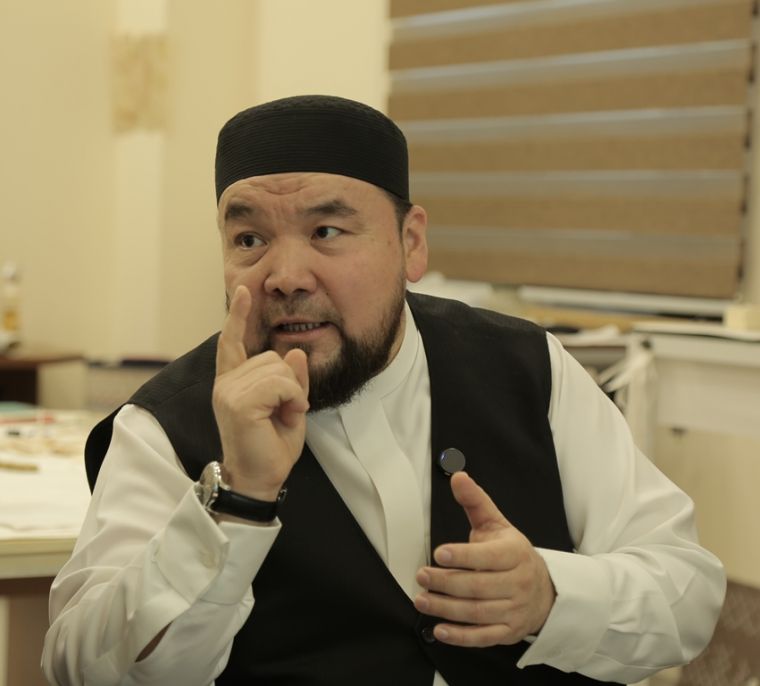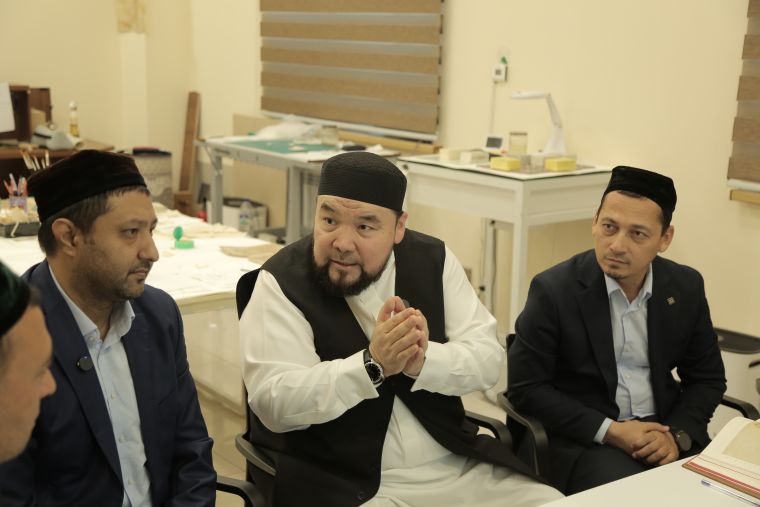Tashkent city


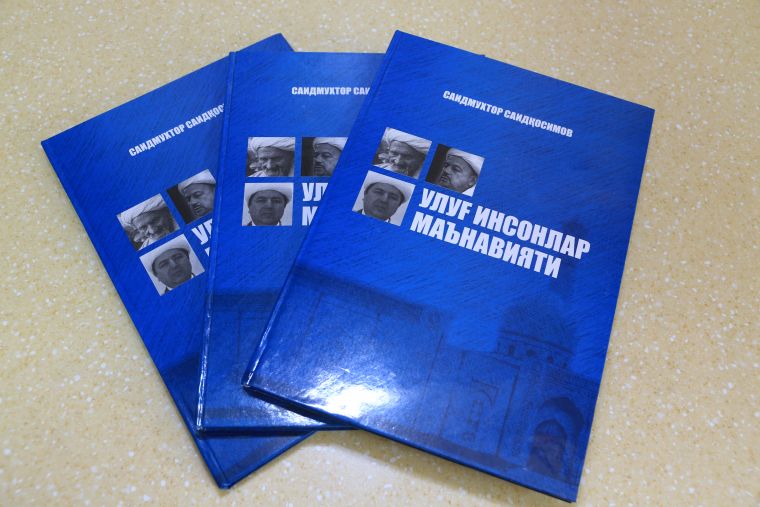
On December 18, 2017 Muslim Board of Uzbekistan hosted an event dedicated to the presentation of Professor Saidmukhtor Saidkasimov’s book under the title “The enlightenment of great pople” devoted to the 80th anniversary of the scholar of oriental studies and diplomat Shamsiddin Bobokhonov. The Academic of the Academy of Sciences of Uzbekistan, Doctor of Philological Studies, Professor Ne’matulloh Ibrohimov, Doctor of Economic Studies, Professor Nurislom Tuxliyev and The Chairman of Muslim Board of Uzbekistan Usmankhan Alimov took part in the event with their presentations. Video script devoted to the autobiography of Shamsiddin Bobokhonov was played on the screen.
Heads and delegates from the Committee on religious affairs under the Cabinet Ministers of Uzbekistan, Muslim Board of Uzbekistan, Islamic Civilization Center of Uzbekistan, scholars of oriental studies, imams and students from Tashkent Islamic Institute and Tashkent Islamic University also participated in the event.
During the meeting Muftiy Usmonkhon Alimov noted that Shamsiddin Bobokhonov’s leadership of Muslim Board had been in 1982-1989, the period of historical time when atheists rein was full of difficulties.
Muftiy made the comparison of that time with the following hadith from our prophet Muhammad sollalohu alayhi wasallam: “There would be times for my ummah when they would keep patience in religious practices like the one who holds fire in his arms”.
It was underlined that the lives of these kinds of people are worth to take as an example. Talking about scholars Imam A’zam said the following: “It is better for me to sit with the circle of scholars rather than reading books, because stories talk about the upbringing of people”
Press service,
Muslim Board of Uzbekistan

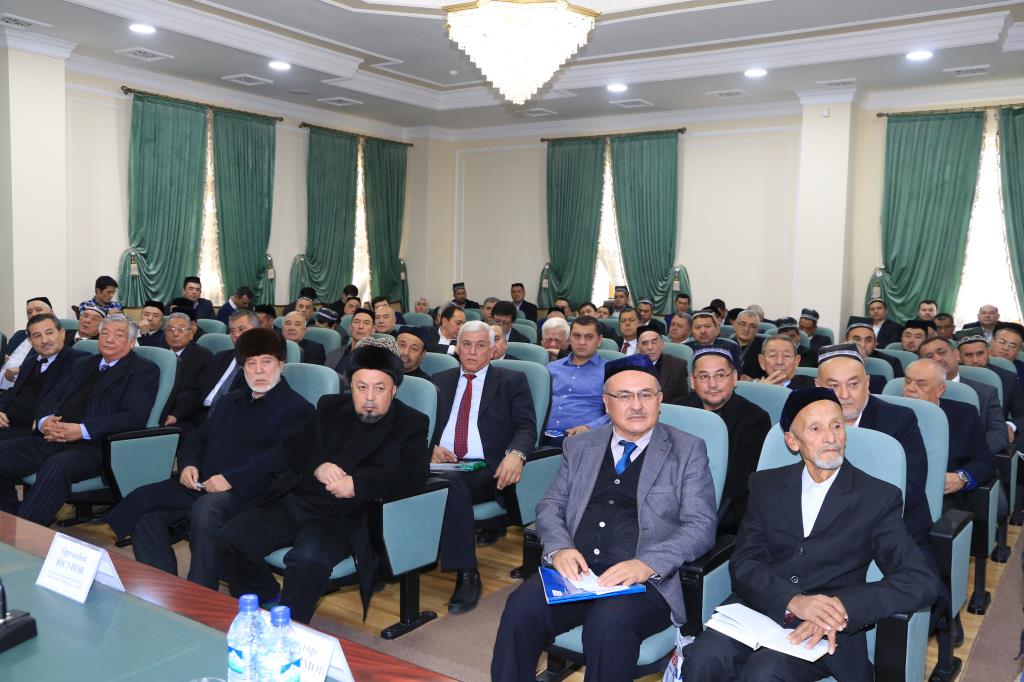
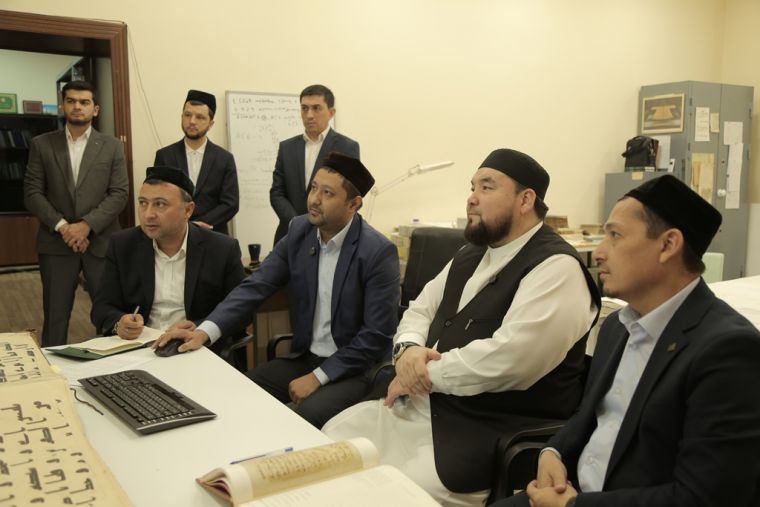
The manuscript of the Uthmanic Mushaf preserved at the Library of the Muslim Board of Uzbekistan is currently undergoing codicological examination.
This research involves a team of scholars including Shaykh Alijon Qori Fayzullah, Head of the “Qur’an and Tajwid Education” Department; Kamoliddin Mahkamov, Head of the Library Department; and Jahongir Qori Nematov, Head of the “Qur’anic Studies” Department at Tashkent Islamic Institute.
Shaykh Alijon Qori Fayzullah emphasized the importance of observing accuracy and trustworthiness when studying and reproducing the script of the Mushaf. He highlighted significant rules of orthography and recitation (qira’at) related to the original handwriting of the Uthmanic Mushaf currently kept at the “Muhi Muborak” Madrasa Museum.
The digital copy of the original Uthmanic Mushaf serves as the main object of the study. In preparing the critical text, researchers also refer to other ancient copies of the Mushaf preserved in Turkey and the United Kingdom.
Each line of the manuscript is being carefully rewritten, with verse and line numbers marked in red. Any textual discrepancies found in the 19th-century copied version are noted in the margins and explained through scholarly commentary.
With the support of the Fund for the Development of Culture and Art of Uzbekistan, both local and international experts — including Dr. Christine Rose from the University of Cambridge, French restorers Achel Delaeau and Coralie Barbe, and Nil Baydar, Head of the Istanbul Manuscripts Workshop and Archive Department — have developed a phased restoration plan to ensure the long-term preservation of the sacred manuscript.
Press Service of the Muslim Board of Uzbekistan

